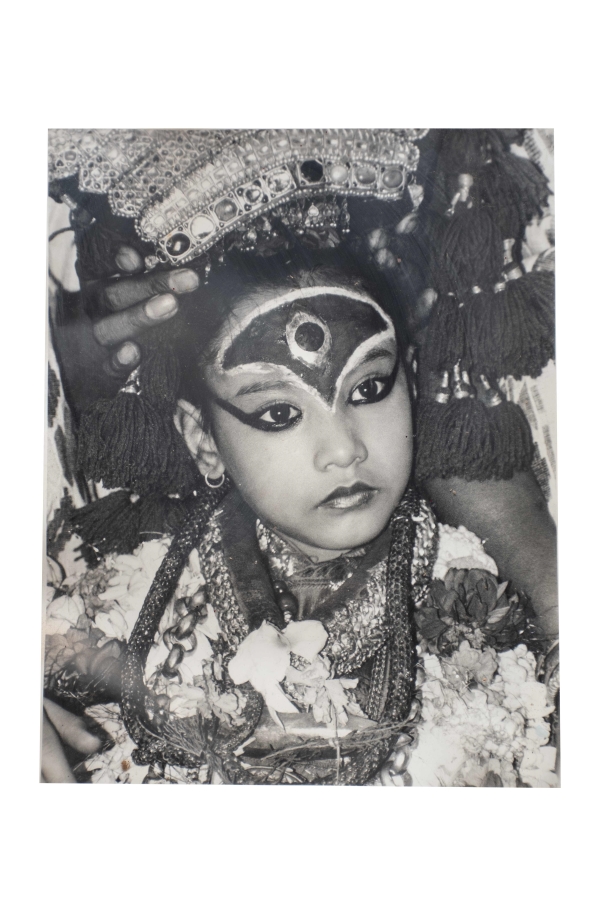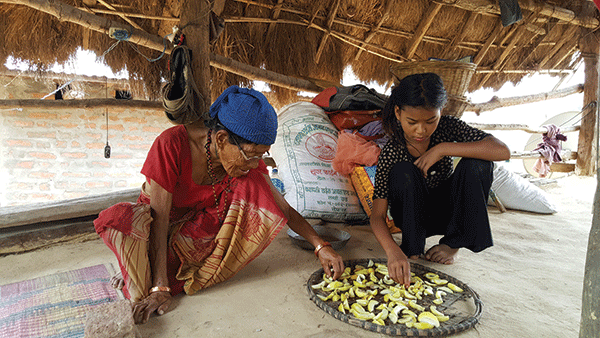From a distance, on a warm summer morning, the fields of wheat stretched out under a piercing sun, look nothing short of gold leaves swaying to a gentle breeze. The sight of the lush, golden fields against the clear blue sky above Bhaktapur is indeed a visual treat. One simply cannot look and just turn away. Such a wonderful sight demands due attention and more often than not, receives it. Another sight that demands its share of curiously fascinated bystanders is the annual harvesting of wheat crops.
Entire neighborhoods spend their days in the sun collecting the harvest. For the people of Bhaktapur, students take leave from schools and colleges, men shut down their shops, and kitchens remain closed in most homes as all make their way to the fields. Men wear the traditional daura suruwal while the women wear their fariya cholo, as impractical as they might be. Children too do their share of chores. Barefoot and smiling, they run about their work, all with happy feet, pleased to be considered big enough to work with elders. The head gear for those toiling away in the sun consists of white scarves or caps. Unresponsive to the scorching heat, the men and women let their muscle memory direct the monotony of the work endlessly. The afternoon finally sees them return with piles of the harvest to be processed.
The neighborhood itself turns golden yellow as the crops are stacked in large courtyards that are common to all homes here. After manually threshing the harvest, the grains are left to dry for a bit in the sun. Flat baskets, woven out of bamboo are used efficiently to separate the grains from the rest of the produce. What rhythm the women move their hands to as the bamboo baskets separate the grains is a mystery, perhaps passed on from generation to generation. The grains of wheat, ripened by the sun are then refined through the grinders. The final product of the grinding machine is the wheat as we know it, in its processed form. The smell of the freshly ground wheat is, to die for.
On any given day of this season, the sights of the area are straight out of yesteryears. There are parts of Bhaktapur that have just refused to change with the passage of time. Besides motorbikes, television and mobile phones, modern civilization has been a huge failure here. An old man smoking a cigarette right next to a pile of dry harvest, women sharing their everyday stories, the children singing and playing, older folk looking on from their windows on the second floor, and the pastoral allure of old brick houses with the typically carved wooden windows. Time here, seems to stand still. But this is a different time; because this is a different Nepal. And the lines on any mature face here will testify gladly to this truth.
The evident charm of the country that the western world sees in postcards from visiting friends remain intact here, for the villagers to breathe in everyday and for the rest of us to return to time and again. Bhaktapur moves to a totally different beat. It does not play by the clock; its people live by the seasons.
Some lesser-known vegetable dishes from the southern plains
I’m not a vegetarian but I love vegetables. And whenever I get to the southern plains of Nepal, I try...










